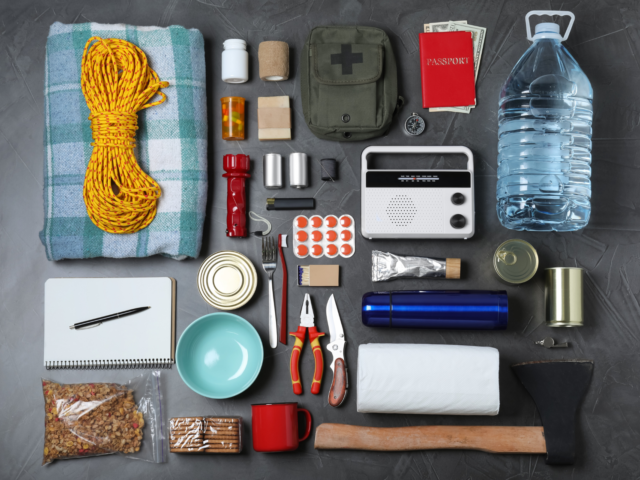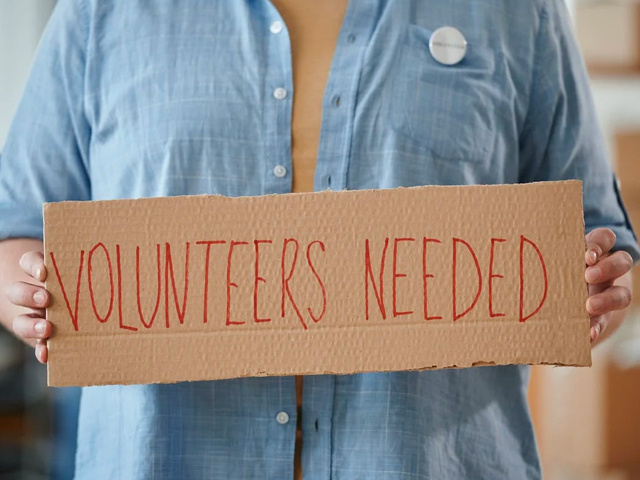Be In The Know
Ocean Safety & Beach Rules
Some things to know before you go.

Virginia Beach has miles of family-friendly public beaches available for all to enjoy, whether it’s surfing the waves, flying a kite, building a sandcastle or simply a leisurely walk. But like any public space, there are rules and regulations that apply, as well as some safety precautions to consider.
Know Before You Go: Beach Rules
Beach Rules
Glass containers, public consumption of alcohol, marijuana and/or illegal drugs are all prohibited on city beaches, parks and grassy areas. Littering is also not allowed, nor are fires and grills.
And though you may be tempted to spend a nice evening reclining under the stars, sleeping on the beach overnight is prohibited.
Electric or motorized vehicles are not permitted on city beaches, unless for City Manager-authorized use by disabled persons or by a special event permit, which is also required to ride horses on the beaches or dunes.
Bathing suits should be kept on always. Changing in public, public nudity (including skinny dipping), obscene displays and indecent exposure are all off-limits.
In addition, the following are prohibited from May 1 through Sept. 30 from 10 a.m. to 4 p.m. on weekdays and from 10 a.m. to 6 p.m. on weekends and holidays:
- Playing ball and throwing aerial objects between the lifeguard stands and the ocean
- Launching or landing personal watercraft
- Fishing and surfing (except where authorized)
Beach Rules: The Pet Edition
If you feel inclined to bring Fido with you for a day of fun in the sun, be mindful of the rules and regulations relating to pets as well. Dogs are welcome on public beaches and the Boardwalk at the Oceanfront any time from fall to spring (after Labor Day and before Memorial Day weekend). They must be leashed on the Boardwalk but can be off leash on the beach so long as they are firmly under their caretaker’s control so as not to disturb other people or dogs.
During the summer, however, from the Friday before Memorial Day through Labor Day weekend, dogs are not allowed on the beach in the Resort Area (between 1st and 42nd streets). They are allowed on the Boardwalk from 6 a.m. to 7 p.m. and they must be on a leash. Owners are also responsible for picking up their pet’s waste. Dogs are permitted on the beach north of 42nd Street and south of Rudee Loop (Croatan and Sandbridge) before 10 a.m. and after 6 p.m. only. Service animals are exempt from these prohibitions under the Americans with Disabilities Act (ADA).
Your pets’ safety should also be a consideration when you bring them to the beach. Ingesting salt water, for example, can cause vomiting and diarrhea, but also seizures, coma and sometimes even death if consumed in large quantities. And serious intentional blockages can occur from eating sand, shells, starfish or stones.
Dogs with short hair, white fur and pink skin are vulnerable to sun exposure, and heat exhaustion can occur quickly, especially when swimming, running and playing. An abundance of fresh water and shade should always be provided to your pets, and only sunscreen specifically formulated for dogs or child-safe sun lotion approved by your vet should be used to prevent sunburns.
Leg and even tail sprains can occur when dogs overdo it, whether on sand or in the surf. And swimming in the ocean can be just as much a drowning hazard for Fido as to you or any other family member, so keep an eye on your pet and look out for signs of exhaustion or struggle.
A long legacy of saving lives
The Virginia Beach Lifesaving Service operates 50 stations along the Oceanfront between 1st and 89th streets and Croatan Beach. It is not only one of largest in the state but also the oldest with a legacy of service to Oceanfront beachgoers stretching back to 1930.
VBLS provides open water lifeguard services in the following areas. Service levels and hours of operation vary by beach location and by time of year:
- Resort Beach – The portion of the sand beach bordered by the northern jetty of Rudee Inlet and the 42nd Street beach entrance.
- Croatan Beach – The portion of the sand beach bordered by the northern fence line of the Camp Pendleton surfing area and the southern jetty of Rudee Inlet.
- 57th Street Beach – The portion of sand beach bordered by the southernmost and northernmost property lines of the Wyndham Oceanfront Hotel at 57th Street.
- Northend Beach - The portion of sand beach bordered by 42nd Street and the southern boundary of Fort Story Military Reservation, except for the area defined as the 57th Street Beach.
Swimmers have responsibilities, too
Learning to swim is the best defense against drowning and should be a skill you and your family have before venturing into ocean waters. Swimmers should stay within 50 yards of shore and follow all instructions given by the lifeguards. And It’s against the law – not to mention unsafe – to swim within 200 feet of any fishing pier.
It’s always a good idea to swim near a lifeguard, and never swim alone. Swimming with a buddy – or at least having someone watch you from on shore – increases the chance that someone will see you signal for help.
Always swim sober. Alcohol can reduce body temperature as well as impair your swimming ability and is a major factor in drowning. And both alcohol and drugs impair good judgment, which can result in unwise risk taking.
According to the Virginia Beach Lifesaving Service website, serious injuries, including paraplegia, occur every year from people diving headfirst into unfamiliar, shallow water and striking bottom. Swimmers as well as body surfers can avoid neck and head injuries by noting water depth and checking for potential obstructions. When body surfing, keep at least one hand extended in front of you.
It’s important that all swimmers recognize their limits and make wise choices about when and where to swim. Non-swimmers should not rely on personal floatation devices to keep them safe when they venture out into ocean waters where they could be knocked off their inflatable raft and drown. The only exception is a person wearing a Coast Guard approved life jacket.
And remember to leash your board if you plan to surf the waves but consider using a breakaway leash so as not to become entangled in any unseen underwater hazards.
Be rip-current wise
Speaking of hazards, rip currents are the single greatest public safety risk at the beach and can be deadly: A preliminary report from the National Weather Service of 2021 surf zone fatalities shows that out of 130 deaths in 2021 in the U.S., 90 were because of rip currents.
A rip current – sometimes incorrectly called a rip tide – is a powerful, narrow column of water that flows away from shore, past the line of breaking waves. The current can range from 15 to 100 meters wide and extend 100 to 400 meters at a speed of up to 5 miles per hour, which can be challenging for even the strongest swimmer.
It’s always a good idea to ask lifeguards about ocean conditions before heading out for a swim. Red flags are typically flown during severe and inclement weather to caution beachgoers about dangerous water conditions but hazards like rip currents can occur even on calm, sunny days, according to the National Weather Service website.
Here are some tips to keep you and your family safe from a rip current:
- Check the weather and water conditions before heading to the beach. Rip currents can happen on any beach where there are breaking waves, and they tend to be strongest at low tide.
- When you get to the beach, take a moment from a high vantage point to look for unusual wave patterns – flat spots between breaking waves and areas of foam or sediment extending away from shore are signs of a rip. When in doubt, ask a lifeguard.
- Be mindful of changing conditions. Don’t swim alone and swim near a lifeguard.
- If you get caught in a rip, it’s most important to stay calm. Contrary to popular belief, rip currents do not pull swimmers under water. Don’t fight the current by trying to swim directly toward shore, instead swim parallel to the beach until you no longer feel the pull of the current. Once out of the current, swim back to shore at an angle.
- If you don’t feel you can swim out of the current, float, wave your arms and call for help.
- If you see someone caught in a rip from onshore, resist the urge to swim out to help; would-be rescuers have become drowning victims themselves. Instead, call for help, whether that’s a lifeguard or 911, and throw out a floatation device if one is available.
- Note: Hard structures can create almost permanent rip current conditions, so swimming near jetties, piers and rocky outcrops is dangerous.
Public restrooms/shower changing stations
When nature calls, a public facility is closer than you think. Restrooms can be found at 2nd, 17th, 20th, 24th, 30th and 31st streets. Portable facilities are also readily available.
New showers and changing stations opened near Rudee Inlet in 2021, providing a model for similar facilities planned for other locations along the Oceanfront over the next several years, including the newest one at 20th Street, opened July 2023.
The hours of operation vary by the season and location.
The beach is for everyBODY
Grommet Island Park is a 15,000 square foot beach park that features wheelchair-accessible entrances and an incredible playground that includes poured-in-place surfacing, raised sand tables for sandcastle building at an accessible height, a sensory board for children who are autistic and visually impaired, and a sway boat.
The playground also boasts sculptural features such as dolphins, a surfboard, and a wave that are all fully accessible for children to pretend to ride the waves and swim with the dolphins. Wood polymer decking extends from the playground to accessible seating areas with an umbrella and hand-operated sand scoop designed to be used by a person in a wheelchair, allowing everyBODY to play in the sand.
For those with mobility impairments, beach wheelchairs are available and are FREE to use, not just on the playground, but on the beach, too. To use a beach wheelchair, call a Beach Ambassador at (757) 439-9565, 7 days a week from 8 a.m. to 8 p.m.
Other Oceanfront playground equipment can be found at 15th and 35th streets.
Share the waters
The Atlantic Ocean is teeming with sea life. Dolphins, whales, turtles and seabirds are common sights off Virginia Beach shores. It’s important to respect their space. Whether you see them on the sand or in the water, give them a wide berth and admire them from afar.
Shark attacks are extraordinarily rare in Virginia Beach, but there are precautions you can take to help minimize risk:
- Avoid swimming or surfing during the low light of dawn or dusk.
- Always swim or paddle out with a buddy or in groups and stay close to shore.
- Don’t wear jewelry or anything shiny that might reflect light like fish scales and avoid excessive splashing.
- If you get a cut that bleeds, get out of the water.
- Don’t swim around schools of fish or where people are fishing, especially near piers.
Occasionally stranded and injured sea animals may be found on the beach or in the water. The Virginia Aquarium & Marine Science Center’s Stranding Response Program coordinates responses for all marine mammals and sea turtles that come ashore in Virginia. Call the Stranding Response hotline, (757) 385-7575, immediately if you find a whale, dolphin, porpoise, manatee or sea turtle on the beach or if discovered injured, entangled, or otherwise in distress in the water. Don’t approach any wildlife or try to provide aid without expert guidance.
Seals are frequent visitors as well and can occasionally be seen resting on the beach or structures near the water. Stay at least 50 yards away from them – keep your pets at a safe distance as well. If a lone seal is at the same location for eight hours or more, or if appears to be in distress, call the hotline.
Important Information
An information kiosk is located at 17th Street. (Seasonal: open Memorial Day to Labor Day weekend)
Beach Ambassadors in bright yellow uniforms are available for information and assistance. They can be reached at (757) 439-9565.
Police, Fire, EMS: 911 for emergencies
Non-emergency and towing inquiries: (757) 385-3111
Visitor Information Center: (757) 385-7873 (SURF) or (800) VA-BEACH (822-3224)
Stranding Response Hotline: (757) 385-7575
Contact Information
Keep Reading
See All Posts-
Calendar News Blog Hot Topics Multimedia Social Media Mobile Apps











